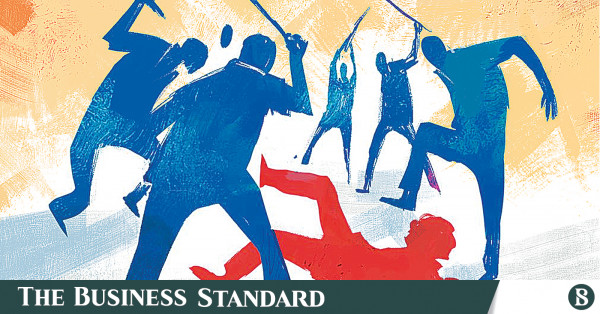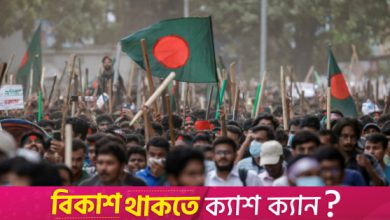How culture of impunity, police inaction fuel rise in mob lynchings


On 20 July 2019, Taslima Begum Renu, a woman seeking admission of her child at a school in Dhaka’s Badda area, was tragically killed in a mob lynching after being falsely suspected of being a child lifter.
Her nephew Syed Nasir Uddin Titu subsequently filed a murder case against 500 unidentified individuals involved in the horrific incident.
After a year-long investigation, the Dhaka Metropolitan Police’s detective branch identified at least 15 suspects directly implicated in the killing and submitted a charge sheet to the court.
Following extensive testimony and arguments, the Dhaka Metropolitan Sessions Judge Court-6 scheduled 30 September as the date for delivering the judgement in this high-profile case.
“In the beginning, the court dates were set every one and a half to two months. Due to Covid-19, the case proceedings were halted for a long time. However, later on, testimonies were heard every 15 to 20 days,” Nasir told TBS, reflecting on the lengthy case proceedings.
“I had to leave my job to manage the legal process. My aunt and Renu’s son, Mahir, also attended court many days during the murder trial,” he added.
He further said, “Despite all the hardship, we have not given up. Many of the accused have offered us to withdraw the case through several means. But we did not agree. We want to fight for the families of the people who died in mob lynching across the country.”
Renu’s case is an exception among the hundreds of mob lynchings in the country in recent years, as convictions remain rare despite the filing of murder cases.
Human rights activists and crime experts say the culture of impunity and lack of police action are responsible for the prevalence of mob lynchings.
According to sources from the police and human rights organisations, at least 286 people have been killed in mob lynchings over the past six years. However, investigations and trials in most of these cases remain a distant reality.
Mob lynchings after 5 August
Since the fall of the Awami League government on 5 August, mob lynching incidents have increased.
At least 44 people were killed in mob lynching incidents between 5 August and 23 September, including 21 in August alone, according to police and human rights group data. In 2023, the total death toll reached 51.
On 18 September, two individuals – Tofazzal Hossain, a mentally unstable youth, and Shamim Mollah, a former Chhatra League leader – were beaten to death in Dhaka University and Jahangirnagar University, respectively. A similar incident took place on 7 September at Rajshahi University, where former BCL leader Abdullah Al Masud was killed.
In Khulna, a young man named Utsab Mondal was severely beaten on 4 September in the presence of law enforcement for allegedly making derogatory remarks about Prophet Muhammad. YouTuber Hero Alam was also assaulted recently on the Bogura court premises.
Even former ministers, MPs, and judges have been attacked by angry mobs in court premises.
Crime analysts say the surge in mob lynchings is fuelled by long-simmering anger and repression of political opponents following the change in power. These incidents are increasing due to the inaction of law enforcement.
Analysts argue that political leaders must urgently send a strong message to their supporters to stop such violence. Alongside legal action against the perpetrators, strict measures – such as expelling the accused from their parties –could help reduce these inhumane acts.
Dhaka University Associate Professor Tawhidul Haque said, “Political interests have fostered anger and a desire for revenge, leading to incidents like mob lynching. However, in the Bangladesh we aim to build through state reform, all crimes must be addressed within a legal framework.”
Mental health expert Professor Dr Helal Uddin Ahmed said, “In such cases, people believe they are beyond the jurisdiction of the law. When individuals act collectively, they think they won’t face legal consequences. This belief encourages them to commit such acts. However, a crime remains a crime.”
“If one person commits a crime, it is a crime; if a thousand people commit a crime, it is still a crime. If society embraces this understanding, incidents of mob violence will decrease. Many people believe that if they join a mob lynching involving 20 others, they bear no responsibility. We need to change this mindset,” he said.
Crime experts note that since the fall of the Awami League government, there is a perception among people that they can act independently, disregarding rules and regulations. Due to past injustices, many lack trust in the police administration.
They also highlighted that mass beatings are often incited by Facebook-centric propaganda.
Human rights activist and former general secretary of Ain O Salish Kendra, Noor Khan Liton, said Bangladesh has just emerged from an autocratic regime, and the state system has yet to be fully restructured.
“In such times, criminals take advantage. The government must address these issues decisively and implement effective measures,” he said.
According to Ain O Salish Kendra, 39 people were killed in mob lynchings in 2018. The number rose to 65 in 2019, many of whom were victims of post-national election violence. In 2020, the death toll decreased to 35, followed by 28 in 2021 and 36 in 2022.
The number climbed to 51 in 2023, the year preceding the twelfth national election. In the first seven months of 2024, 32 people were killed in public lynchings.
Most of these killings occurred in Dhaka, as per Ain O Salish Kendra.
Human rights activists argue that despite several directives from the police headquarters urging people not to take the law into their own hands, the effectiveness of these messages has not been realised in practice.
They claim that at present, such incidents continue to happen due to police inaction.
Delayed justice and trauma of victims’ families
The families of the victims say that while there are cases of mass beatings, prosecutions are rare. They believe that delivering justice would send a strong message to society.
The lack of justice has also had a traumatic impact on the families of the victims.
A stark example is the family of Taslima Begum Renu, who are still grappling with the trauma of her tragic murder and the lengthy legal battle for justice.
Since Renu’s death, her two children, Mahir and Tuba, have been living with her sister, Nazmun Nahar, in Dhaka while continuing their studies.
Tahsin Al Mahir, 16, is currently in ninth grade at a school in Uttara, while Tasmin Mahira Tuba, 9, is in third grade at BAF Shaheen College.
Nazmun shared that both children have been suffering psychological distress since their mother’s death. She has also faced challenges in raising her sister’s children alongside her own and navigating the legal process to ensure justice.
“While raising Renu’s two children, we have had to make many sacrifices and face financial hardships. To ensure a better future for Tuba and Mahir, we demand financial support from the state,” Nazmun said.
Mahir shared, “I used to think about my mother more when I was in the hostel. Here, at my aunt’s house, things are easier; we can all be together.”
Nazmun Nahar said after Renu’s death, their mother, Sabura Khatun, lived for a few more years.
“As a mother, witnessing her daughter die in such a brutal attack caused her immense pain. It’s heartbreaking that she never got to see justice served for Renu’s killing. Until her death, she cried every night,” she added.
On 17 July 2011, six students were killed in a lynching incident in Baradeshi village near Aminbazar, Dhaka. Ten years later, the court sentenced 13 individuals to death and 19 to prison, but the case is still pending in the Appellate Division.
On 29 October 2020, Abu Yunus Mohammad Shahidunnabi was beaten and burned to death in Patgram, Lalmonirhat, over allegations of insulting the Quran. A video of the brutal killing and the burning of his body later went viral on Facebook.
Following the incident, several individuals were arrested by Lalmonirhat police.
Abida Sultana, the former superintendent of police in Lalmonirhat, told TBS, “During my tenure, I submitted a charge sheet against the culprits. However, the trial has not progressed since then.”
“According to court sources, the case stalled at the testimony stage,” she added.
Abu Ahmed Faizul Kabir, senior coordinator of the Advocacy and Networking Department at Ain O Salish Kendra, said, “In recent decades, there have been no instances of trials, sentencing, or even the initiation of trials following investigations into mob lynching cases.”
However, he pointed out that the cases of Renu in Badda and the Aminbazar student murders are exceptions.
“Due to widespread public outrage, the police thoroughly investigated these two cases and identified the culprits. In the Aminbazar incident, a verdict has already been delivered with sentences handed down,” he added.




